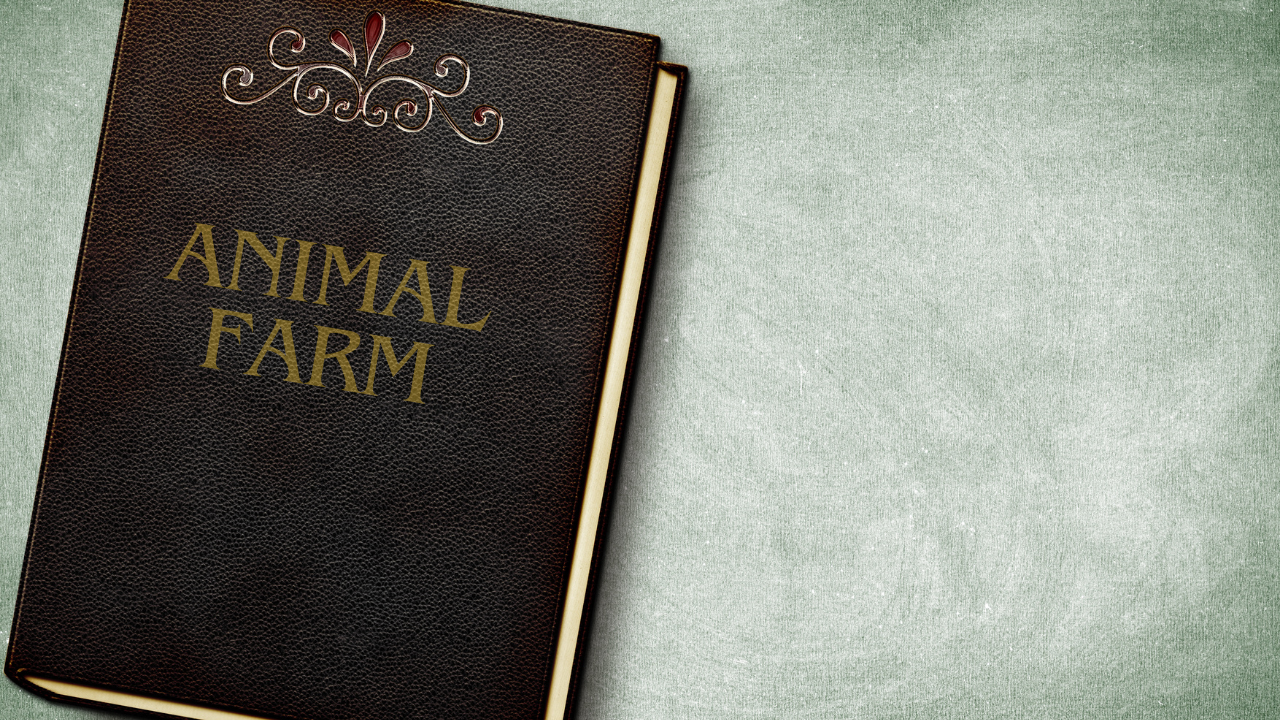If you’ve ever wondered what happens when a group of farm animals tries to overthrow their human master and run things on their own, George Orwell’s Animal Farm is the book for you. But don’t let the simple concept fool you—this novella is a sharp political allegory that packs more punch than a barnyard brawl. Published in 1945, it’s Orwell’s satirical take on the Russian Revolution and the rise of communism, with farm animals standing in for politicians and ideologies.
So grab a pitchfork (metaphorically, of course), and let’s dive into this short summary of Animal Farm. Spoiler alert: it’s not all rainbows and equality in the barnyard.
The Revolution Begins
The story kicks off on Manor Farm, where the animals are fed up with their human owner, Mr. Jones, who spends more time drinking than taking care of them. Enter Old Major, a wise old pig with a vision of a better future. He dreams of a farm where animals are free, equal, and no longer at the mercy of humans. After giving a fiery speech that ends with the iconic anthem “Beasts of England,” Old Major inspires the animals to revolt.
Unfortunately, Old Major dies before he can see his dream come true, but his ideas light a spark among the animals. The pigs, led by Snowball and Napoleon, step up as leaders and organize the revolution. Soon, they chase Mr. Jones off the farm, and Manor Farm becomes Animal Farm, a utopia where all animals are supposedly equal.
Rules for the New Order
The animals create a set of commandments to guide their new society, with the most important being:
“All animals are equal.”
Other rules include no sleeping in beds, no wearing clothes, and no drinking alcohol—basically, no behaving like humans. At first, things seem to be going well. The animals work hard but feel a sense of pride knowing the fruits of their labor are theirs. Snowball, in particular, dreams big, even planning to build a windmill to make life easier.
But it doesn’t take long for cracks to form in this animal utopia.
Power Struggles: Napoleon vs. Snowball
Trouble brews when Napoleon and Snowball clash over how to run the farm. Snowball is passionate, innovative, and wants to improve life for everyone, while Napoleon is more interested in seizing power. Things come to a head when Napoleon uses his trained attack dogs (yes, he’s been secretly raising them) to chase Snowball off the farm.
With Snowball out of the picture, Napoleon takes over as the sole leader. And guess what? He’s not exactly the benevolent ruler the animals hoped for.
The Decline of Equality
Under Napoleon’s rule, things take a dark turn. The pigs start bending the rules, rewriting the commandments to suit their needs. Suddenly, it’s okay for pigs to sleep in beds and drink alcohol, as long as they add a sneaky qualifier like “with sheets” or “in moderation.”
The windmill, once Snowball’s dream, becomes Napoleon’s pet project. The animals work harder than ever to build it, only to have it destroyed by a storm (which Napoleon blames on Snowball, because why not?). Over time, the pigs grow more corrupt, enjoying the luxuries of human life while the other animals starve and toil.
The Final Betrayal
By the end of the story, the pigs have completely abandoned the ideals of the revolution. Napoleon and his fellow pigs are indistinguishable from the humans they overthrew. In the novella’s chilling conclusion, the animals watch as the pigs host a dinner with neighboring farmers, laughing and toasting to their shared success.
The animals realize the bitter truth:
“The creatures outside looked from pig to man, and from man to pig, and from pig to man again; but already it was impossible to say which was which.”
What It All Means
On the surface, Animal Farm is a story about a failed barnyard utopia. But dig deeper, and it’s a brilliant critique of power, corruption, and broken promises. Orwell uses the animals to represent historical figures and ideologies—Napoleon is a stand-in for Joseph Stalin, Snowball for Leon Trotsky, and the rest of the farm mirrors the struggles and betrayals of the Russian Revolution.
The book’s main message? Power corrupts, and even the most idealistic revolutions can fall apart when greed and ambition take over.
Why Animal Farm Still Matters
Even though it was written nearly 80 years ago, Animal Farm is still incredibly relevant today. Its themes of propaganda, inequality, and abuse of power resonate in any era. Plus, it’s a quick read with unforgettable characters—where else can you find a power-hungry pig and a workaholic horse in the same story?
Conclusion: The Tale of Power and Pigs
George Orwell’s Animal Farm may be a short novella, but its impact is huge. It’s a fable for grown-ups, packed with sharp wit and biting social commentary. Whether you read it for its historical allegory or its timeless lessons about power, one thing’s for sure: Orwell knew how to turn a barnyard rebellion into a literary classic.
So next time you see a pig, remember: Not all revolutions end in equality. Some just end in a fancier pigsty.
